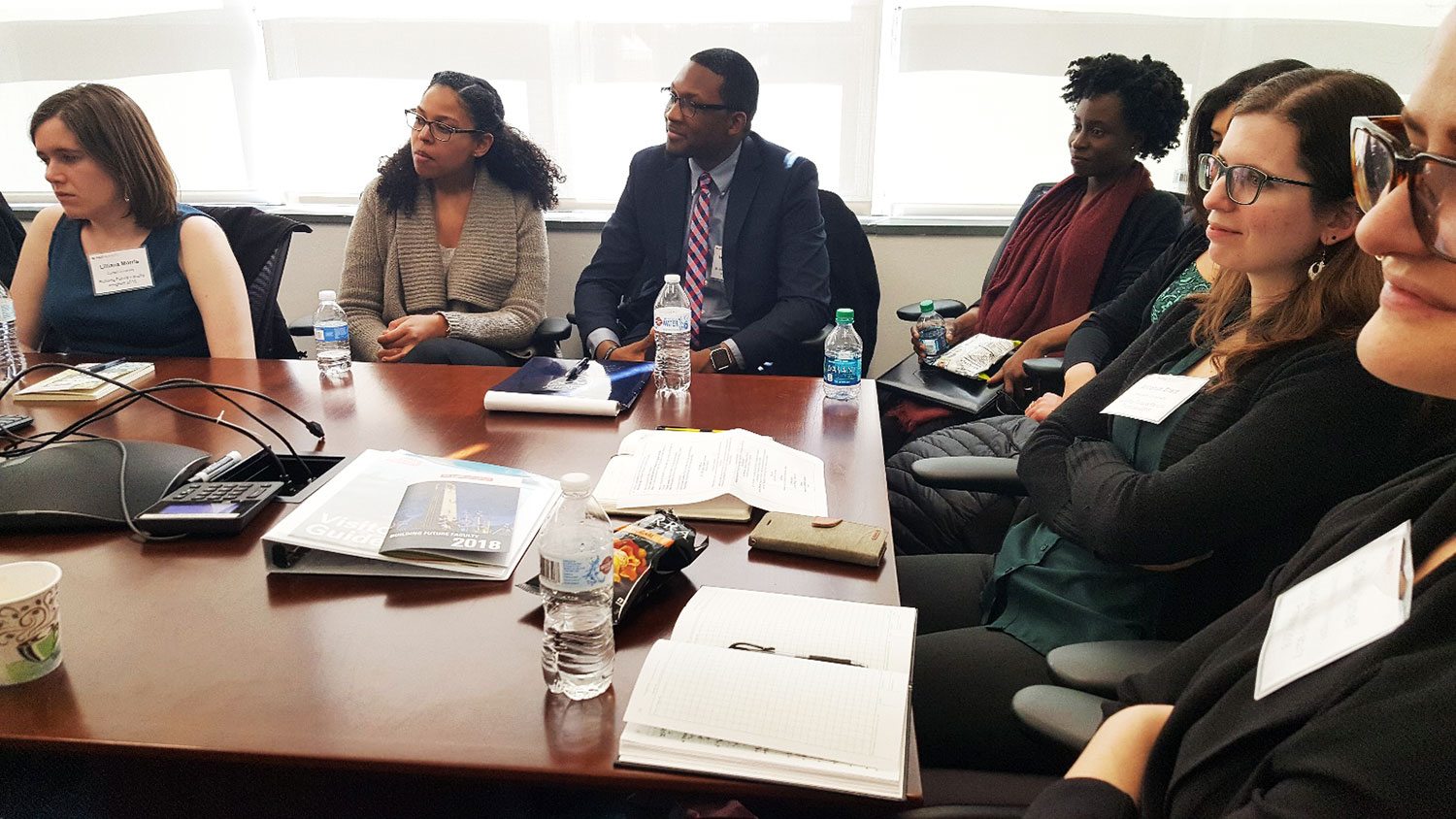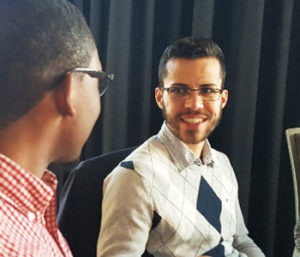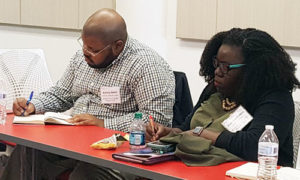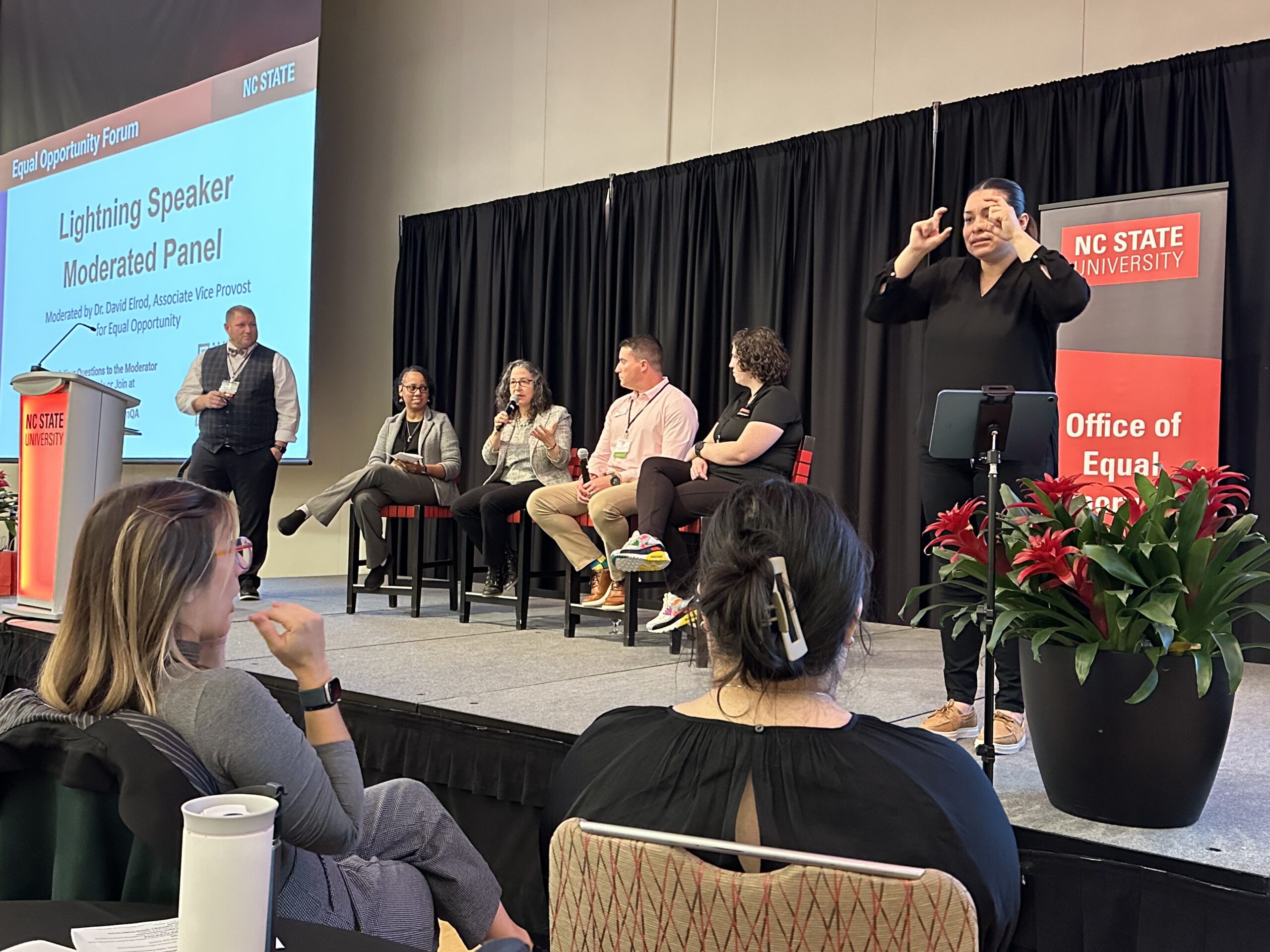Record Number of Departments Host Future Faculty Workshop Participants

A record number of departments participated in the Building Future Faculty workshop, which was held at NC State from March 14-16, 2018. Thirty-four graduate students and postdocs from across the country participated this year, the thirteenth year of the program. The participants came from every type of university, part of the country and discipline. Participants’ research spanned an exciting array of specialties, including:
- combining building analytics with cognitive computing to develop energy self-sufficiency in building systems;
- post-quantum cryptography, contributing protocols that are efficient and secure;
- artistic production (theater and dance) by marginalized or sociopolitically underrepresented populations;
- utilizing additive manufacturing (i.e., local or site-specific metallurgy and incorporation of nanomaterials) to design novel materials with unprecedented properties;
- interactions between apparel design and technology;
- network estimation for brain imaging data;
- increasing access to effective elementary mathematics education for underserved populations.
What is Building Future Faculty?
Building Future Faculty (BFF) is a two-and-a-half-day professional development workshop for diverse advanced graduate students and postdocs who are preparing for faculty careers.
 The aim of the program is to provide candid advice and feedback as well as opportunities to build skills necessary to succeed in an academic career, with the goal of enhancing the diversity of the pipeline to the professoriate. The BFF schedule is packed with workshops on topics such as “de-jargonizing your research,” “polishing your elevator pitch” and “growing from your dissertation to independent research” to success strategies for new faculty, grant funding and navigating department politics. It’s an intense two days.
The aim of the program is to provide candid advice and feedback as well as opportunities to build skills necessary to succeed in an academic career, with the goal of enhancing the diversity of the pipeline to the professoriate. The BFF schedule is packed with workshops on topics such as “de-jargonizing your research,” “polishing your elevator pitch” and “growing from your dissertation to independent research” to success strategies for new faculty, grant funding and navigating department politics. It’s an intense two days.
Each participant spends a half-day visiting with faculty and graduate students in their own discipline. Faculty and staff hosts in each department make this part of the BFF program the most important component. During this visit, the BFF participant makes a presentation on their research and receives individual feedback on their CV and steps they should consider to strengthen their preparation for a faculty position.
What Participants are Saying
Comments from participants’ feedback give a sense of how they experienced the visit:
“This was such an excellent part of the workshop. I can’t say enough good things about it. My department really gave me the time, and my BFF Mentor was honest, welcoming, thoughtful and full of constructive criticism.”
“The match with my department was even better than I thought. NC State has gone from barely being on my radar for post-graduation plans to being at the top of my shortlist for places I would like to be.”
“My department visit was excellent! They treated my presentation as a short version of a faculty interview research seminar. I got really good feedback from the faculty that attended it. I also had really good conversations with my department host and the faculty that I visited with. They gave me so much useful advice for my faculty applications. The department I visited was also very prepared. They corresponded with me several times before the event, gave me a detailed schedule for my afternoon with them so I would know who I was meeting with and what to expect, and they advertised my presentation. They even had my photo and information on the TV’s in their department and tweeted about my visit and presentation! I think the department visit might have been the most valuable part of BFF (for me).”
 This year’s BFF participants have a passion for their research, for sharing education with the next generation and for social justice. Over 50% of BFF alumni go on to faculty careers. Currently, ten alumni of the Building Future Faculty program are on the faculty or in postdoctoral positions at NC State. We are energized and excited for what the future holds for the 2018 BFF participants and for NC State’s future faculty diversity.
This year’s BFF participants have a passion for their research, for sharing education with the next generation and for social justice. Over 50% of BFF alumni go on to faculty careers. Currently, ten alumni of the Building Future Faculty program are on the faculty or in postdoctoral positions at NC State. We are energized and excited for what the future holds for the 2018 BFF participants and for NC State’s future faculty diversity.
Marcia Gumpertz is a professor of statistics and assistant vice provost for faculty diversity.
- Categories:


